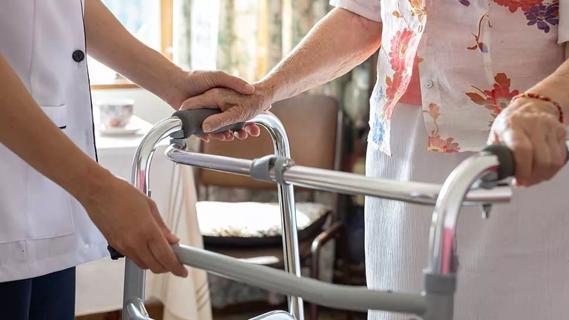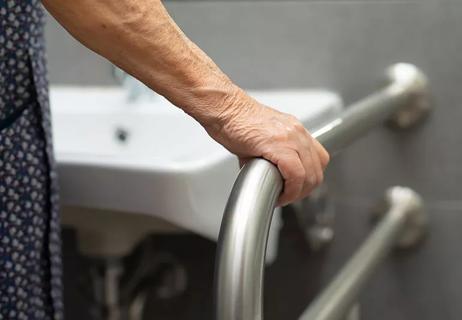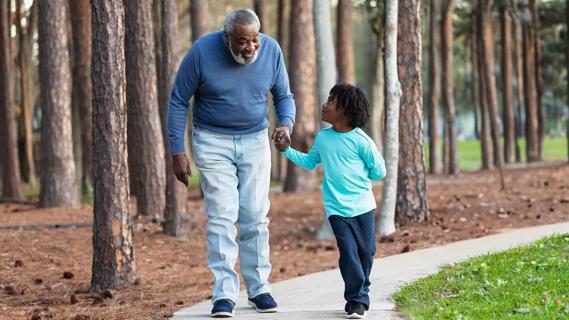Advertisement
Age and chronic conditions increase your risks

Our bodies spend a lot of time dealing with infection. When you get an infection, a healthy, active immune system works to fight it off.
Advertisement
Cleveland Clinic is a non-profit academic medical center. Advertising on our site helps support our mission. We do not endorse non-Cleveland Clinic products or services. Policy
But what happens when your immune system is not sufficient to fight it off alone? The infection can progress to a more advanced stage known as sepsis.
Sepsis, or inflammation resulting from the body’s fight against infection, is more prevalent in older adults. One reason is that your immune system and the body’s natural physical defenses (such as the skin) weaken as you age.
Fewer than 15% of Americans are older than 65, but that age group makes up nearly two-thirds of patients who are hospitalized for sepsis, says critical care physician Anita Reddy, MD.
When elderly patients are hospitalized for sepsis, they are more likely to be admitted to the intensive care unit, stay in the hospital longer and more likely to die than younger adults, she adds.
Here’s what you need to know about sepsis.
When your body has a severe infection, your immune system kicks in to fight it. It releases chemicals that cause inflammation and low blood pressure (hypotension). If you are sick enough, this inflammation and hypotension can cause damage to organs including the brain, lungs and kidneys.
Sepsis is a very serious condition, so it’s important to get help quickly if it sets in.
The most severe form of sepsis is called septic shock, and it occurs when a person’s blood pressure becomes so low that they need medication to maintain adequate blood flow. Patients with severe sepsis and septic shock typically need to be taken care of in an intensive care unit.
Sepsis is a serious condition, but your doctor can treat it with antibiotics and fluids.
If it isn’t caught quickly, however, it can affect how multiple organs function. If you have organ problems before you get sepsis, the risk of infection and severity of organ damage increases.
Symptoms vary from person to person, but there are a few telltale signs that are consistent with sepsis. Watch out if someone with a fever also has the following symptoms:
In seniors, a fever might not be present — their body temperature may actually be low instead.
Sepsis can occur any time a severe infection is present.
Although an infection can progress enough to cause sepsis in anyone, including people with normal immune systems, it is more likely in those with compromised immune systems.
In young people, compromised immune systems are most often seen in:
Advertisement
However, of all cases of sepsis in the U.S. each year, far more are seen in older people. “Age is a significant risk factor for sepsis,” says Dr. Reddy.
A person’s immune system as they get older is not as complete or as vigorous as when they are younger.
Another factor that makes sepsis more common as people age is the increase in chronic conditions that affect vital organs.
“Infections in older patients can develop and progress rapidly because their immune systems are not functioning as well, and certain physiologic reflexes and defenses degrade with aging,” Dr. Reddy says.
Examples include:
The only way to avoid sepsis is to steer clear of infections. The best way to do this, particularly for older people is to:
Exercise can also help the body respond more properly to infection.
Once infection has advanced to a stage including sepsis, delays in treatment become very important to avoid.
“Every hour that passes, the risk of developing sepsis increases dramatically, so knowing the symptoms of infection and getting help immediately is crucial,” Dr. Reddy says.
If you think you or a loved one has an infection and signs of sepsis, seek medical assistance immediately by calling 911 or going to the emergency room.
Advertisement
Learn more about our editorial process.
Advertisement

Keep the area clean and monitor your incision site for discharge, odor or a change in appearance

Chair exercises can help people age 65+ retain independence

Calorie reduction can do more than just help you lose weight — it can also lower age-related inflammation

Any large social gathering — from a family birthday party to an indoor music concert — has the potential to spread serious infection

It’s critical to understand the wishes of your loved one and seek their involvement whenever possible

Some planning, products and projects can help older adults stay in their homes safely longer

Cooties aren’t real, but the lessons they teach us about infectious disease are

Avoid smoking, eat a good diet and exercise to prevent your heart from aging prematurely

Focus on your body’s metabolic set point by eating healthy foods, making exercise a part of your routine and reducing stress

PFAS chemicals may make life easier — but they aren’t always so easy on the human body

While there’s little risk in trying this hair care treatment, there isn’t much science to back up the claims